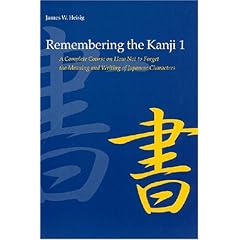Hello,
I was wondering whether anyone has any Japanese books to recommend as tools for learning the language. At the moment, I want to buy a book that teaches you kanji, but there are so many! I don't know which one to buy. If anyone has some recommendations, I'd be very appreciative.
Thanks!
Lessons

Your Next Lesson

Say Hello in Japanese No Matter What the Time of Day
Absolute Beginner Season 1
Learn how to greet someone both formally and informally
Congratulations! You've finished everything on your pathway.
Add a new path?








